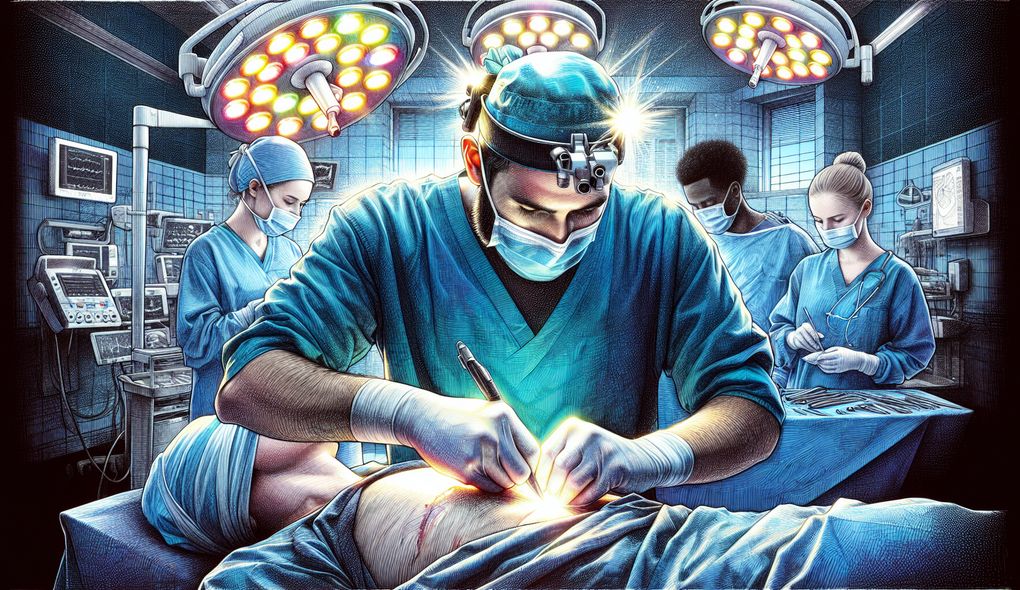How do you prioritize patient care in emergency settings?
JUNIOR LEVEL

Sample answer to the question:
In emergency settings, I prioritize patient care by assessing and stabilizing patients with life-threatening injuries as quickly as possible. I then perform emergency surgical procedures to treat any traumatic injuries. Communication and collaboration with the emergency department staff are crucial in providing comprehensive care. After surgery, I conduct post-operative follow-up and provide ongoing patient care in the ICU. I ensure accurate documentation of medical records and stay updated with developments in trauma surgery and patient care.
Here is a more solid answer:
In emergency settings, I prioritize patient care by utilizing my excellent surgical skills and knowledge of emergency procedures. I remain calm and effective in high-pressure situations, allowing me to make swift and precise decisions. Communication and team collaboration are fundamental in providing comprehensive care, so I actively collaborate with the emergency department staff. After surgery, I conduct post-operative follow-up and provide ongoing patient care in the ICU. I ensure accurate documentation of medical records and stay updated with developments in trauma surgery and patient care.
Why is this a more solid answer?
The solid answer provides more specific details on how the candidate prioritizes patient care, highlighting their excellent surgical skills, ability to remain calm in high-pressure situations, and their focus on communication and collaboration. However, it still lacks examples of past experiences or projects to support their claims.
An example of a exceptional answer:
In emergency settings, I prioritize patient care by utilizing my excellent surgical skills and knowledge of emergency procedures. For example, during my residency, I encountered a patient with a life-threatening gunshot wound. I quickly assessed the situation, stabilized the patient, and performed the necessary surgical procedure to save their life. My ability to remain calm and effective in high-pressure situations allows me to make quick and accurate decisions, ensuring the best outcome for the patient. Communication and team collaboration are essential, so I actively engage with the emergency department staff, providing updates and coordinating care plans. After surgery, I conduct thorough post-operative follow-up and deliver ongoing patient care in the ICU, addressing any complications or concerns. I prioritize accurate documentation of medical records, ensuring a comprehensive overview of the patient's care journey. Additionally, I constantly stay updated with developments in trauma surgery and patient care by attending conferences and participating in continuing education initiatives.
Why is this an exceptional answer?
The exceptional answer includes specific examples of past experiences, highlighting the candidate's ability to utilize their surgical skills in emergency situations. It also emphasizes their calmness in high-pressure situations, communication and collaboration skills, and dedication to staying updated with developments in trauma surgery. The answer is well-rounded and comprehensive, demonstrating the candidate's expertise in prioritizing patient care.
How to prepare for this question:
- Highlight specific examples of past experiences in emergency settings, showcasing your ability to utilize surgical skills and provide excellent patient care.
- Practice remaining calm and effective in high-pressure situations, as this is crucial for making quick and accurate decisions.
- Improve your communication and team collaboration skills by actively engaging with colleagues and participating in team-based projects.
- Stay updated with developments in trauma surgery and patient care by attending conferences, workshops, and engaging in continuing education initiatives.
What are interviewers evaluating with this question?
- Surgical skills and emergency procedures
- Remaining calm and effective in high-pressure situations
- Decision-making and problem-solving abilities
- Communication and team collaboration skills

